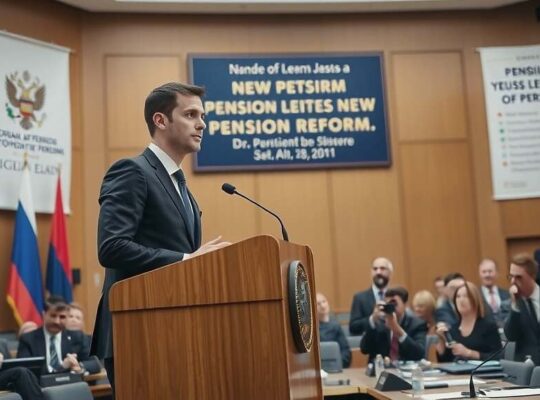A simmering coalition dispute is escalating over proposed reforms to Germany’s pension system, with rising concerns about the long-term financial sustainability of the plan. Young conservative politicians within the Christian Union (CDU/CSU) are accusing Labor Minister Bärbel Bas of the Social Democratic Party (SPD) of exceeding the boundaries outlined in the existing coalition agreement with her legislative proposal regarding pension level adjustments.
According to calculations by the Prognos Institute and reported by “Süddeutsche Zeitung”, Minister Bas’s current draft, if implemented, would lead to escalating costs for the national budget exceeding €115 billion annually by 2032. To avert what would likely become recurring and substantial government subsidies to the pension fund, the Prognos Institute suggests a one-time reduction in pension payments. Their model indicates that a 0.7% decrease in all pensions in 2032 would effectively negate the initially proposed 2.2% increase, ultimately eliminating the need for taxpayer-funded support.
This proposed solution, however, is facing staunch opposition. Leading figures within the Christian Union, including Johannes Winkel, Chairman of the Junge Union (Young Union), have explicitly ruled out any form of pension cuts. This stance highlights a fundamental ideological divide within the governing coalition, with young conservatives prioritizing the preservation of existing benefit levels even at the risk of further increasing long-term budgetary strain.
The SPD, echoing this sentiment, has also publicly opposed any suggestion of pension reductions. This widespread rejection of a potential solution raises serious questions about the feasibility of the proposed reforms and casts a shadow over the coalition’s ability to address the increasingly pressing challenges facing Germany’s pension system. The current impasse underscores a broader struggle to reconcile social welfare commitments with fiscal responsibility, leaving the future of German retirement security in a state of uncertainty and prompting critical scrutiny of the government’s approach.












